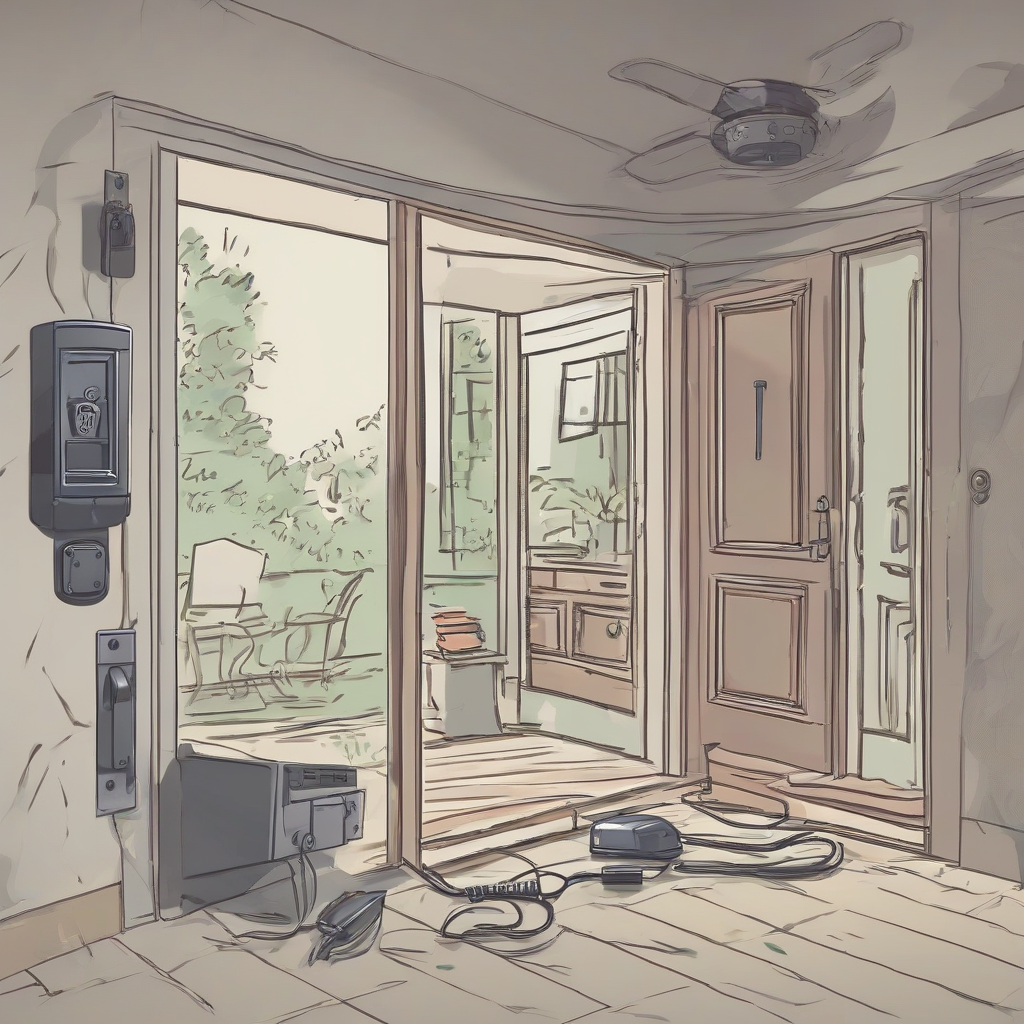Unveiling the Ultimate Home Security System: A Comprehensive Guide to Choosing the Best Protection for Your Family
Choosing the best home security system can feel overwhelming. With a plethora of options available, from DIY kits to professionally monitored services, understanding your needs and evaluating various features is crucial. This comprehensive guide will delve into the key aspects to consider, helping you make an informed decision and secure your home effectively.
Types of Home Security Systems
Home security systems generally fall into three main categories:
- DIY Systems: These systems offer a cost-effective solution, allowing you to install and manage the system yourself. They often come with a range of smart features, controllable through a mobile app. However, professional monitoring is usually an additional cost.
- Professionally Monitored Systems: These systems are installed and maintained by security companies. They provide 24/7 professional monitoring, meaning emergency services will be dispatched if an alarm is triggered. This offers a higher level of security and peace of mind, albeit at a higher price point.
- Hybrid Systems: These systems blend the benefits of DIY and professionally monitored systems. You install the system yourself but opt for professional monitoring for added security.
Key Features to Consider
Selecting the right system involves careful consideration of several essential features:
1. Sensors
- Door/Window Sensors: Detect openings and trigger alarms.
- Motion Sensors: Detect movement within designated areas.
- Glass Break Sensors: Detect the sound of breaking glass.
- Smoke/Carbon Monoxide Detectors: Essential for early warning of potential hazards.
- Flood Sensors: Detect water leaks to prevent damage.
2. Control Panel
The control panel is the central hub of your system. Consider:
- Ease of Use: A user-friendly interface is crucial for quick and efficient operation.
- Connectivity: Wi-Fi connectivity is essential for remote access and control via smartphone app.
- Backup Power: A battery backup ensures functionality even during power outages.
3. Monitoring Services
Professional monitoring provides significant advantages:
- 24/7 Surveillance: Continuous monitoring ensures rapid response to emergencies.
- Dispatch of Emergency Services: Professional monitoring services will contact emergency responders immediately if an alarm is triggered.
- Security Response Teams: Some companies offer security response teams that will be dispatched to your property.
4. Smart Home Integration
Many modern security systems offer seamless integration with other smart home devices:
- Smart Locks: Remotely lock and unlock your doors.
- Smart Lighting: Automate lighting to deter intruders.
- Smart Thermostats: Control your home’s temperature remotely.
- Voice Assistants: Control your system with voice commands through devices like Alexa or Google Home.
5. Camera Systems
Security cameras add a significant layer of protection:
- Indoor Cameras: Monitor the interior of your home.
- Outdoor Cameras: Monitor the exterior of your home, deterring potential intruders.
- Video Recording: Record video footage for review and evidence.
- Night Vision: Ensure clear visibility in low-light conditions.
- Two-Way Audio: Communicate with visitors or deter intruders remotely.
6. Mobile App
A user-friendly mobile app enhances control and convenience:
- Remote Access: Control your system from anywhere.
- Real-time Alerts: Receive immediate notifications of any activity.
- Video Playback: Review recorded footage remotely.
7. Professional Installation
While DIY systems are convenient, professional installation offers advantages:
- Expert Placement of Sensors: Optimizes system effectiveness.
- Troubleshooting and Support: Access to professional assistance if issues arise.
- Warranty and Guarantees: Protection against defects and malfunctions.
8. Pricing and Contracts
Consider the overall cost of the system, including:
- Initial Equipment Costs: The upfront price of the system.
- Monthly Monitoring Fees: Ongoing costs for professional monitoring services.
- Contract Terms: Understand the length and terms of any contracts.
Choosing the Right System for Your Needs
The “best” home security system depends entirely on your individual needs and budget. Consider the following:
- Budget: Determine how much you’re willing to spend on equipment and monthly monitoring fees.
- Home Size and Layout: The size and complexity of your home will impact the number of sensors and cameras required.
- Lifestyle: Consider your lifestyle and how often you’re home.
- Security Concerns: Identify your specific security concerns and choose features that address them.
- Technological Proficiency: Consider your comfort level with technology when choosing between DIY and professionally installed systems.
By carefully weighing these factors and researching various providers, you can find the optimal home security system to safeguard your family and property.
